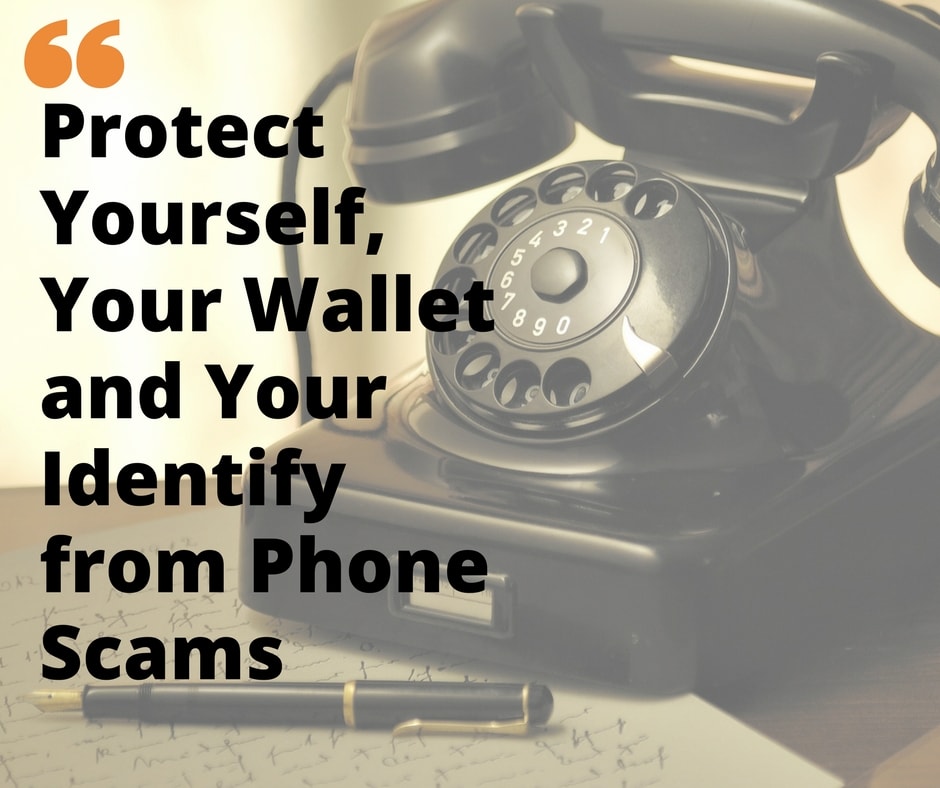Protect Yourself, Your Wallet and Your Identity from Phone Scams
By Alvaro Peon Sanchez, Senior Product Manager at Whitepages
A survey of more than 2,000 adults last year found that an estimated one in every 10 American adults lost money in a phone scam over the past 12 months – totaling about $9.5 billion overall.
Scammers have developed a variety of convincing techniques to trick people into handing over their personal information and their credit card numbers. It’s important that individuals educate themselves about the common threats so they can avoid falling victim the next time the phone rings.
According to the National Council on Aging, some of the most common financial scams for seniors include those around Medicare and health insurance, counterfeit prescription drugs, funeral and cemetery scams, and false sweepstakes and lottery winnings.
Tax scams, in particular, have grown 1,218 percent since last year. Fraudsters call claiming to be IRS employees, even spoofing their Caller ID information to appear as though the IRS is calling. According to the IRS website’s Tax Scams/Consumer Alerts page, “Victims are told they owe money to the IRS and it must be paid promptly through a gift card or wire transfer. Victims may be threatened with arrest, deportation or suspension of a business or driver’s license. In many cases, the caller becomes hostile and insulting.”
In addition, there are several best practices to keep in mind to prevent yourself from becoming a victim of phone fraud:
Don’t answer unknown calls.
This a quick and simple fix. If you get a call asking for payment, hang up. No one from a federal government agency will call you for money, even the IRS. You may want to review this fact sheet, “How to know it’s really the IRS calling or knocking on your door.”
Don’t call a suspicious number back.
Many scammers will use a number that looks like it’s from the IRS or other reputable organization. Spoiler: it’s not. This tactic is called spoofing. If it is important, the caller will leave a voicemail. If they don’t, you’re justified in not answering their call in the first place.
Never provide your credit card number or specific personal identification.
Information like your social security number and credit card number should never be given to a caller, even if you are familiar with the business or charity they claim to be from. Common scams include calls that pretend to be from utility companies, Microsoft technical support, or charities. A good rule of thumb: only when you call THEM should you give them your information.
Know how to spot a scam.
First things first, if you get an unwarranted call, proceed with caution. The Federal Trade Commission (FTC) outlines some of the red flags to help identify telemarketing scams, including calls that start with comments like:
- You’ve been specially selected (for this offer).
- You’ve won one of five valuable prizes.
- You’ve won big money in a foreign lottery.
- This investment is low risk and provides a higher return than you can get anywhere else.
- You have to make up your mind right away.
Do your research.
If you’re still not certain about the legitimacy of a caller, do a little digging. Obtain a salesperson’s name, business identity, telephone number, street address, mailing address, and business license number before you transact business. Some con artists give out false names, telephone numbers, addresses, and business license numbers—verify the accuracy of these items. Consider an online background check to confirm that the caller is who they say they are.
The FBI’s Tips for Avoiding Telemarketing Fraud also suggests that you check out unfamiliar companies with your local consumer protection agency, Better Business Bureau, state attorney general, the National Fraud Information Center, or other watchdog groups. However, not all bad businesses can be identified through these organizations.
Report suspicious numbers to help others avoid threats.
With the growing number of scams, it is important that scams don’t go unreported. While reporting the call doesn’t necessarily stop the scam from continuing, it does allow for the FTC to notify consumers of common scams. You can also file a report with the FCC here. Additionally, Whitepages offers consumers the ability to report spam phone numbers through Whitepages.com. This feature will soon be available through their mobile app.
It’s unlikely that phone scams are going away any time soon so it is incredibly important for consumers to be aware of common phone scams. Being aware of potential threats will enable you to identify scams quickly and allow you to save time and becoming the next victim of fraud.
About the author
 Alvaro Peon Sanchez is a senior product manager for Whitepages Premium and mobile products. Alvaro is responsible for the launch of an updated mobile app, from Whitepages, an identity verification provider and people search engine.
Alvaro Peon Sanchez is a senior product manager for Whitepages Premium and mobile products. Alvaro is responsible for the launch of an updated mobile app, from Whitepages, an identity verification provider and people search engine.
Whitepages was founded in 1997, and helps you contact, research and verify people in your world. More than 30 million people per month use its people search engine to get in touch with extended friends and family, conduct background checks and verify that people are who they say they are.




































